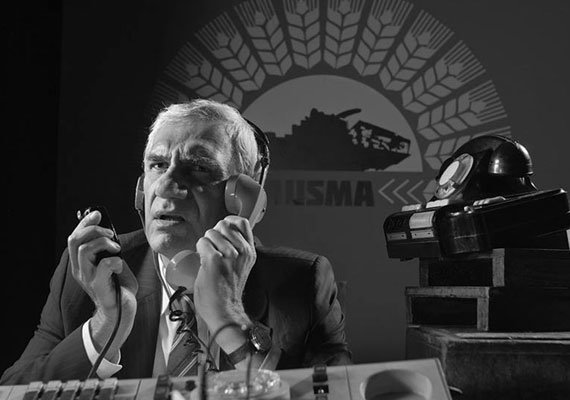For a film industry as active and prolific as Iran’s (nearly 100 features are produced in the country every year), having a well-organized and well-represented film festival is a must. For 34 years, Fajr Film Festival has been shouldering that responsibility. The first edition of the international section of the festival was held in 1982 and it did not take long for the festival to establish itself as a reputable film event. Since its foundation, the FIFF has played a significant part in promoting the Iranian cinema and each year, veteran directors and first-time filmmakers have tried their hands at shaping the motion picture industry in Iran.
For a film festival as old as this, there is always high expectations, high anticipation, and high enthusiasm. There has always been a high turnout for the festival, too, from Tehran audiences who seek out new Iranian film titles that have probably been good enough to have gotten into the screening list. But the international section of the festival was separated in 2014 and there were concerns that not many people would show up to watch foreign titles. The concerns were apparently ungrounded. According to the festival’s head of Public Relations, Mr. Kayvan Kassirian, nearly 7,000 people have registered for the FIFF this year to watch the international films handpicked by the festival’s director, Mr. Mirkarimi. Taking a look at the ‘cinematicket’ website to book tickets for today’s screening films revealed that almost all of them have already been sold out. It seemed the audience were more enthusiastic to watch Mark Osborne’s ‘The Little Prince’, a 2015 successful animation that has won César Award for Best Animated Film, as even the 11 AM show time for Thursday was sold out within the first hours selling tickets opened.

The festival, however, experienced its first unofficial opening day on Tuesday for the media people, by screening four films that included 'Ice and the Sky' by Luc Jacquet, 'Frenzy' by Emin Alper, 'The Magic Mountain' by Anca Damian, and 'Dawn' by Laila Pakalnina. I went to watch the Latvian production, 'Dawn' (‘Ausma'), which according to the synopsis, was going to challenge our views on who is in the right and who is in the wrong, and which had won Best Cinematography in Tallinn Black Nights Film Festival.

This tragicomedy monochrome drama from the Latvian writer-director Laila Pakalnina was so visually beautiful that you could not help but feel awe at every smooth transition from one magical scene to another. There was not much dialogue, which marks a huge difference from typical Iranian films that build characters and shape the relationships between them mostly through lengthy lines stacked with oftentimes quotable words. But 'Dawn' was not built on silence either; on the contrary, the movie was brimming with sounds of maniac laughter, tolling bells, national anthems, shrieking babies, barking dogs and crackling chicken. For the most part, the camera moves horizontally, but this is not a linear narrative at all. For one thing, there seems to be a lot going on, but for another, it sometimes become hard to decide what is exactly going on. A satirical take on a Soviet legendary figure, Pavlik Morozov, who was murdered by his own family after betraying his anti-Communist father to the authorities, the movie may at times lose the focus of its audience who are not conversant with Soviet history. Although the themes of political propaganda, family betrayals, death and hope for a brighter future, when infused with satire and metaphor, are universally understood. The elements of absurd are artistically entwined with masked tragedy, in a way that death touches the characters that seem to be removed from it, as Karlis, the farm's political boss, would say proudly: "we Bolsheviks never cry."
There is the general idea that films are a window to another country, and that they will give you an insight into that country’s culture and history within the compact duration of one or two hours. International film festivals, then, present that golden opportunity to the interested audiences to have a taste of the goings-on beyond their borders.
Reza Mirkarimi, speaking on the opening day of the 34th FIFF on Wednesday, said the screening programs will satisfy every cinematic tastes; “one could actually say there is a panorama of diverse styles, forms and geography in the festival, prominent films from different countries as well as rarely-seen productions, all will be screened for the audience,” he said.
The 34th Fajr International Film Festival is currently underway at Charsou Complex, Tehran, and will run until April 25, 2016.
'Dawn' is a co-production of Latvia and Poland with an international crew: script and direction: Laila Pakalniņa, camera: Wojciech Staron (Poland), art direction: Jurģis Krāsons. Cast: Vilis Daudziņš, Antons Grauds, Andris Keišs, Liene Šmukste.

























Your Comment